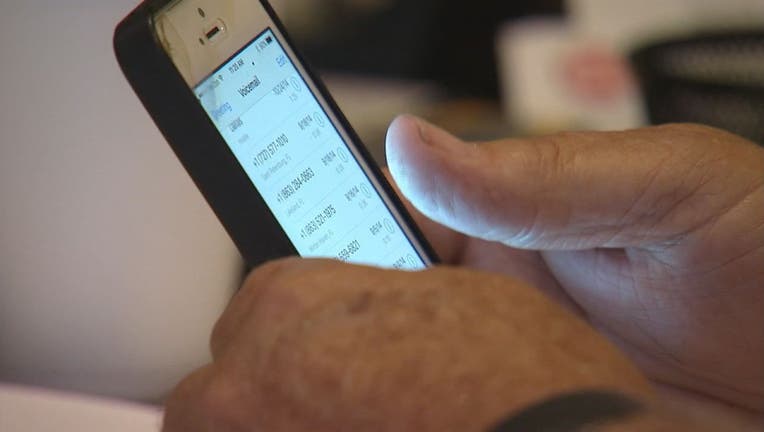One ring phone scams on the rise

HOUSTON (FOX 26) - For illegal robocallers, the goal isn't always getting you to answer. Sometimes, it's getting you to call back.
The Federal Communications Commission officials issued a warning Friday after detecting a surge in "one ring" scam robocalls with a West African area code. Also known as "Wangiri," is Japanese for "one ring and drop". The scam generates multiple robocalls targeting specific area codes. Generally, the robocaller will call a number and hang up after a ring or two - over and over again. These calls are likely trying to get consumers to call the number back, charging per minute fees similar to a 900 number.
One-ring calls may appear to be from phone numbers somewhere in the United States, including three initial digits that resemble U.S. area codes. But savvy scammers often use international numbers from regions that also begin with three-digit codes - for example, "649" goes to the Turks and Caicos and "809" goes to the Dominican Republic. Such scammers may often use spoofing techniques, as well, to further mask the number in your caller ID display.
If you call any such number, you risk being connected to a phone number outside the U.S. As a result, you may wind up being charged a fee for connecting, along with significant per-minute fees for as long as they can keep you on the phone. These charges may show up on your bill as premium services.
Variations of this scam rely on phony voice-mail messages urging you to call a number with an unfamiliar area code to "collect a prize" or to notify you about a "sick" relative.
How to avoid this scam:
Filing a complaint with the FCC: If you are billed for a call you made as a result of this scam, first try to resolve the matter with your telephone company. If you are unable to resolve it directly, you can file a complaint with the FCC at no cost.
Filing a complaint with the Federal Trade Commission: If you feel that you are a victim of an international phone scam, you can file a complaint with the FTC.

